Once again, nowhere is safe in the Gaza Strip.
Children and families urgently need vital humanitarian aid, including safe water, nutrition, shelter and health care.
The ceasefire must be reinstated and sustained.
UNICEF urges all parties to immediately reinstate the ceasefire, and we call on countries with influence to use their leverage to ensure the situation does not further deteriorate. International humanitarian law must be respected by all parties, allowing the immediate provision of humanitarian aid, the protection of civilians, and the release of all hostages.
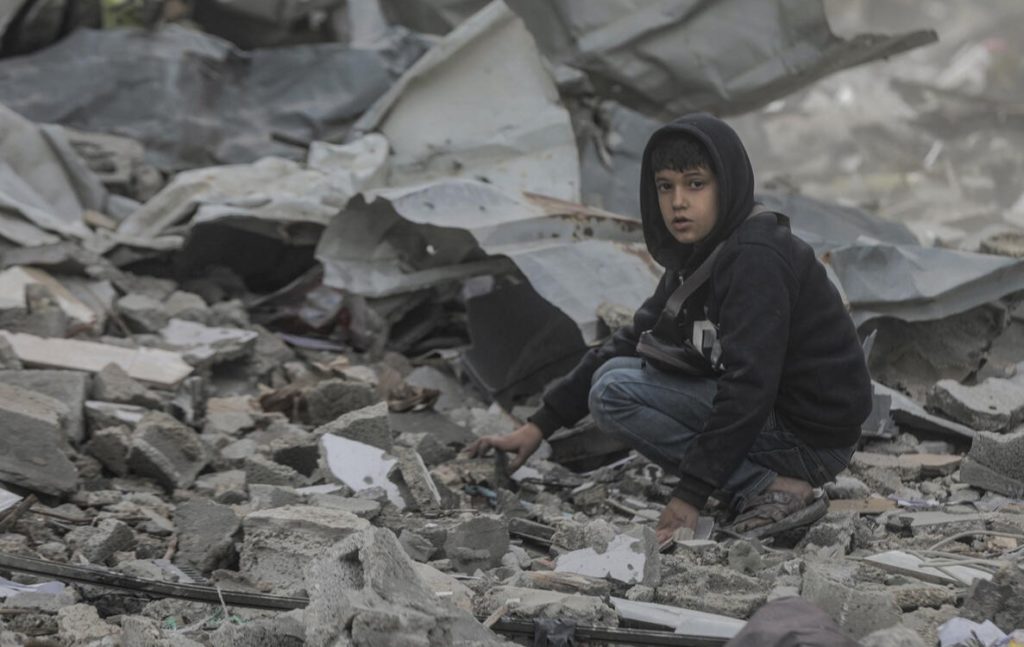
How you can support
If you wish to donate by bank transfer, please use the details below:
| Account Name: | UNICEF Ireland |
| Bank Name: | AIB |
| Bank Address: | 7/12 Dame Street, Dublin 2 |
| Account Number: | 24070037 |
| IBAN: | IE37AIBK93338424070037 |
| BIC: | AIBKIE2D |
Donations by cheque can also be sent by post to:
UNICEF Ireland, 33 Lower Ormond Quay, Dublin 1, D01 R283
You are also welcome to get in touch and a member of our team will be in contact directly.
Philanthropy & Major Gifts
Should you or your family office wish to provide support, please contact Donna Marie O’Donovan, Head of Philanthropy at donna.marie@unicef.ie.
Corporate Partnerships
For businesses, please contact Owen Buckley, Head of Corporate Partnerships at owen@unicef.ie.
Thank you for your support.
How is UNICEF helping children in Gaza?
Health:
UNICEF is facilitating immunization catch up activities to prevent outbreaks.
Distribution of emergency health kits, baby kits, first-aid kits, and the provision of health and medical services such as midwifery care, maternal and child health care.
Water, Sanitation & Hygiene (WASH):
Distribution of drinking water, as well as fuel to support the operation of essential water and sanitation facilities, and hygiene kits for families. More than 600,000 people rely on the UNICEF-supported desalination plant in South Gaza for water.
Nutrition:
Distribution of micronutrient supplements to prevent anaemia and nutritional deficiencies. Distribution of high-energy and protein food rations. Malnutrition screening of children and mothers, as well as breastfeeding support for caregivers.
Education:
Distribution of Early Childhood Development kits and recreational kits to displaced children to support their well-being, life skills, and healing.
Child protection:
Mental health and psychosocial support for children traumatised by ongoing violence. Support for unaccompanied and separated children to be reunited with their families after becoming separated due to the conflict. Distribution of dignity kits to women and girls, including menstrual hygiene kits.
Social protection:
Multi-purpose cash assistance to help vulnerable people to meet their basic needs, including to support pregnant and breastfeeding women, and children with disabilities.
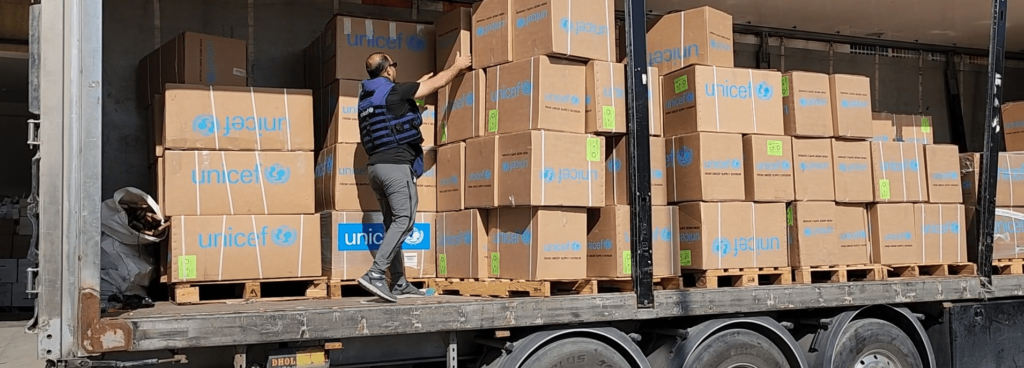
UNICEF delivering aid into the Gaza Strip. ©UNICEF
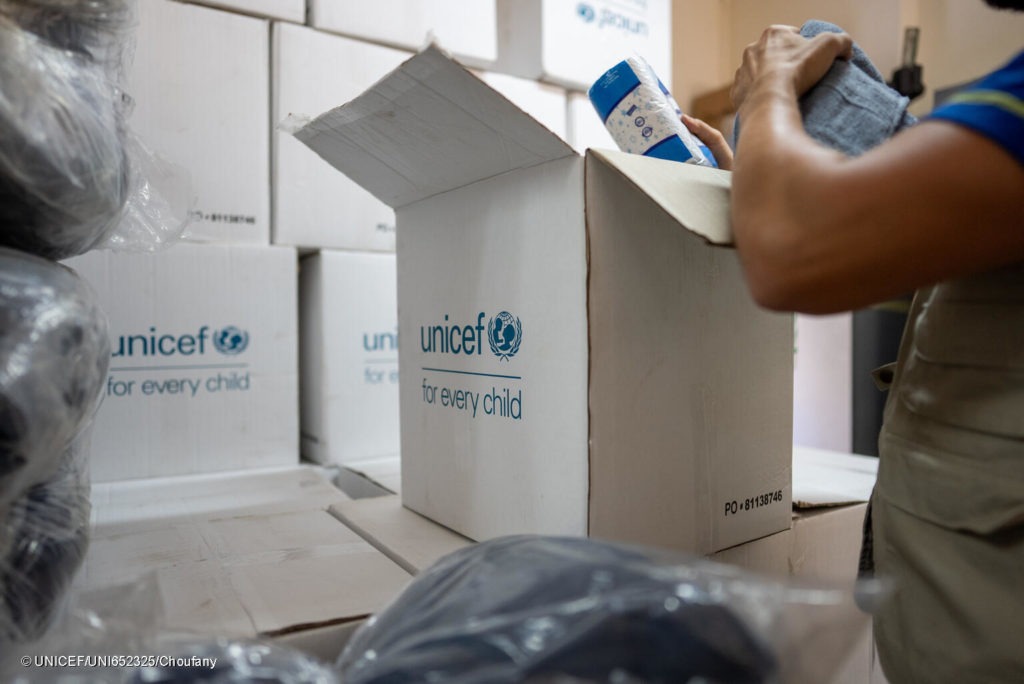
To stay up to date with full details of UNICEF’s humanitarian response, view our monthly Situation Reports.
Why UNICEF?
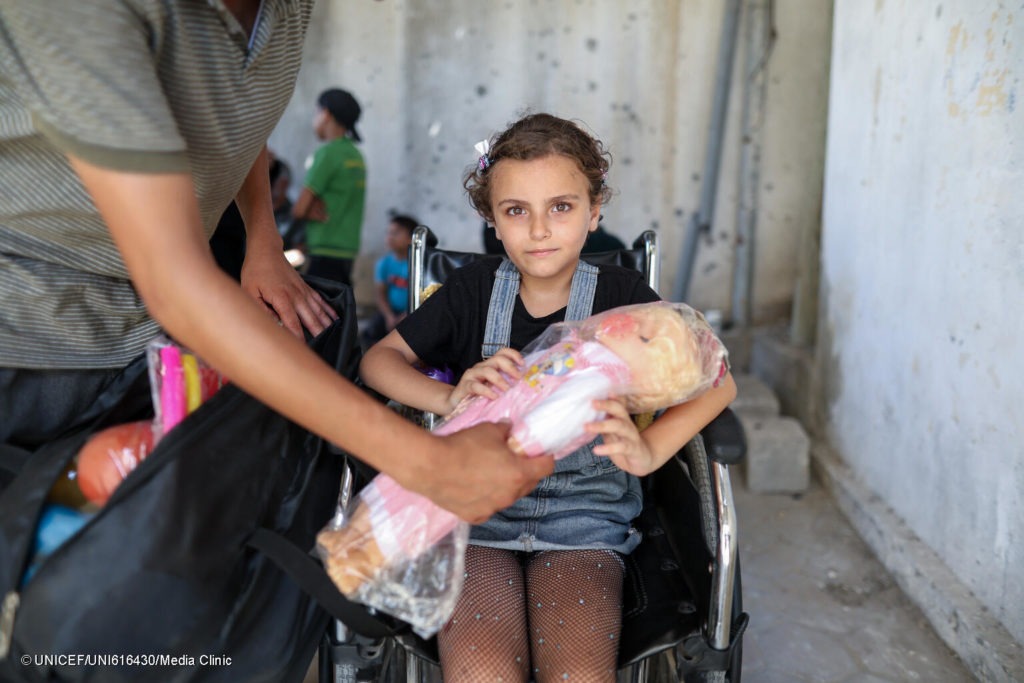
UNICEF has been supporting children and families on the ground in the State of Palestine for decades.
The sheer scale of our infrastructure and long-term development work for children means that we are uniquely positioned to respond rapidly and effectively to these crises.
With a vast global procurement and distribution network, including the largest humanitarian warehouse in the world, UNICEF is equipped to respond rapidly with lifesaving supplies and support.
Sustainable interventions are important because crises are not one-time shocks; their impact can last for years. UNICEF’s humanitarian action takes a cross-sectoral approach that includes health, nutrition, water, sanitation and hygiene (WASH), child protection, education, psychosocial support.
Non-political and impartial, we are never neutral when it comes to defending children’s rights and safeguarding their lives and futures.
And we never give up.
UNICEF in emergencies
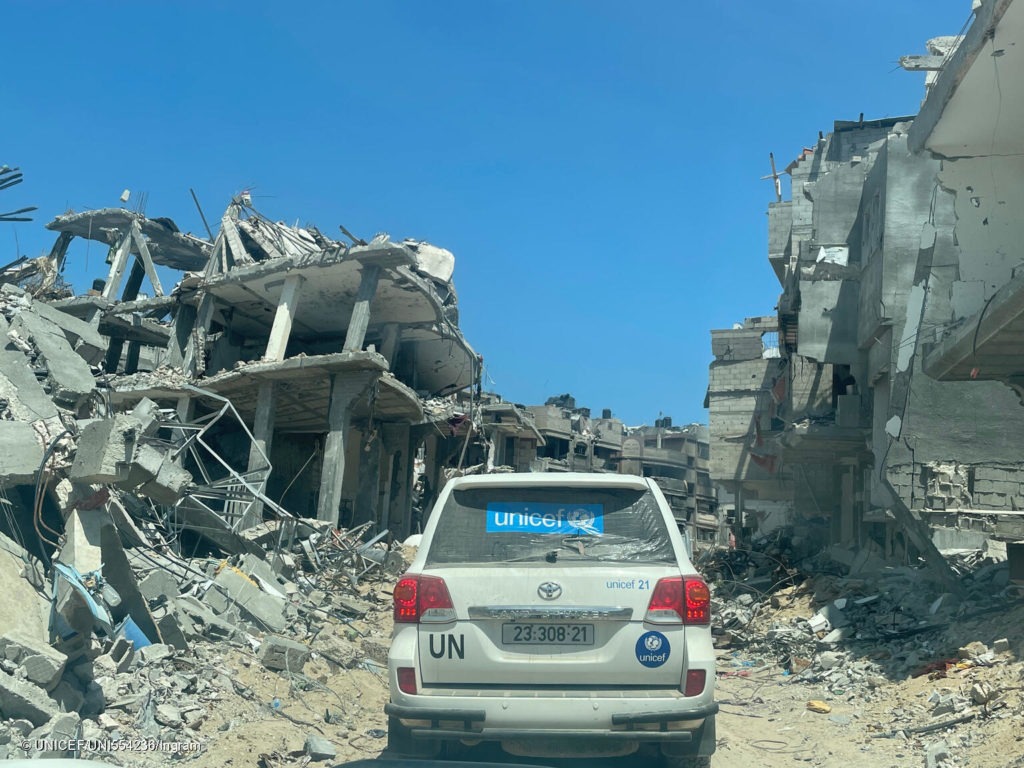
Humanitarian action is central to UNICEF’s mandate
In conflict and disaster, children suffer first and suffer most. During emergencies and humanitarian contexts, children are especially vulnerable to disease, malnutrition and violence. Children living in conflict areas are worst off – they are more likely to be living in extreme poverty, for instance, or not enrolled in primary school.
The chaos and insecurity of war threatens or destroys access to food, shelter, social support and health care, and results in increased vulnerability in communities, especially for children. UNICEF focuses on these children and their families to provide them with the essential interventions required for protection, to save lives and to ensure the rights of all children, everywhere.
UNICEF also works to strengthen the links between humanitarian action and development work. Our presence in many countries before, during and after emergencies, delivers a continuum of support. For example, the rehabilitation and upgrade of water and sanitation systems serve vulnerable households in both the immediate crisis and the longer term.

